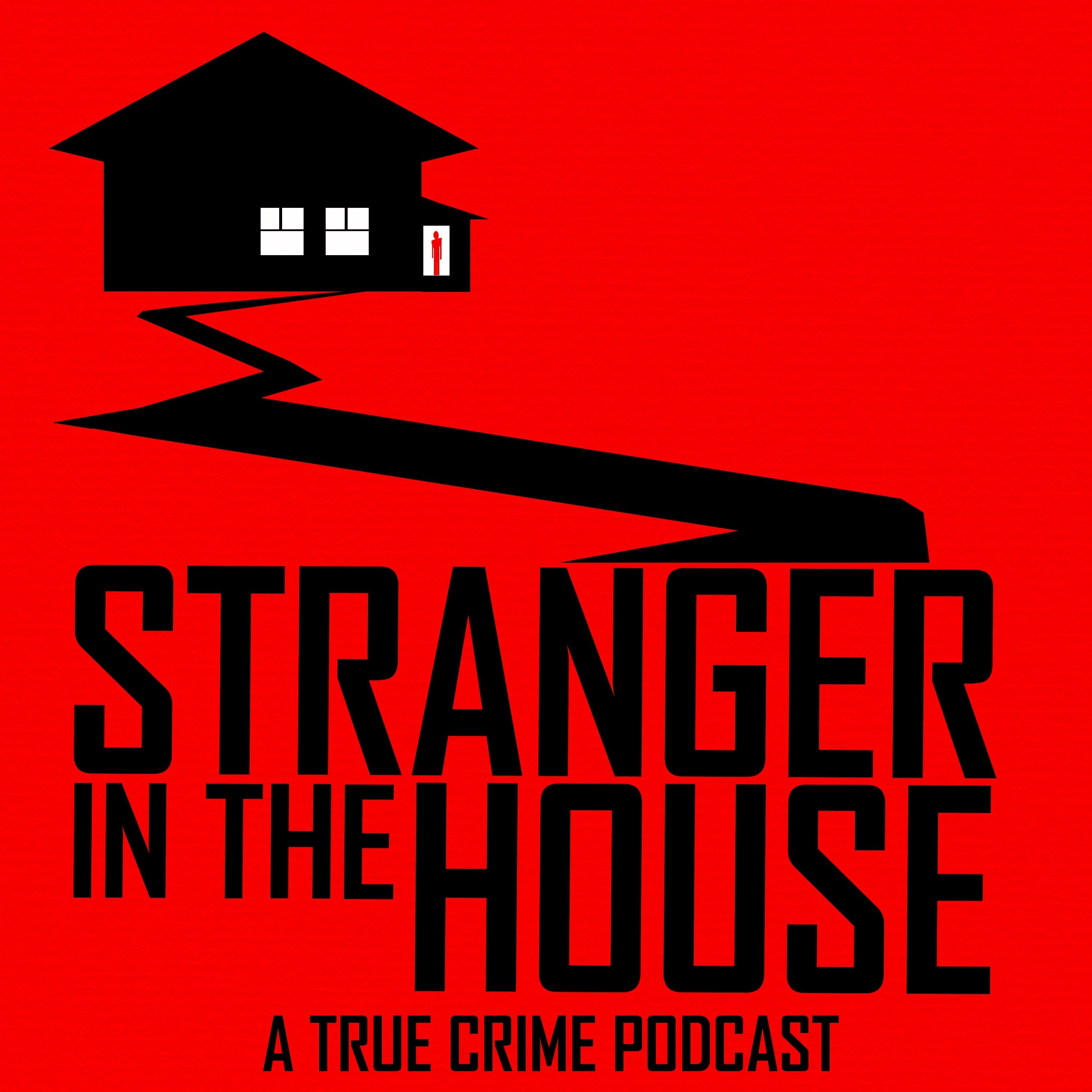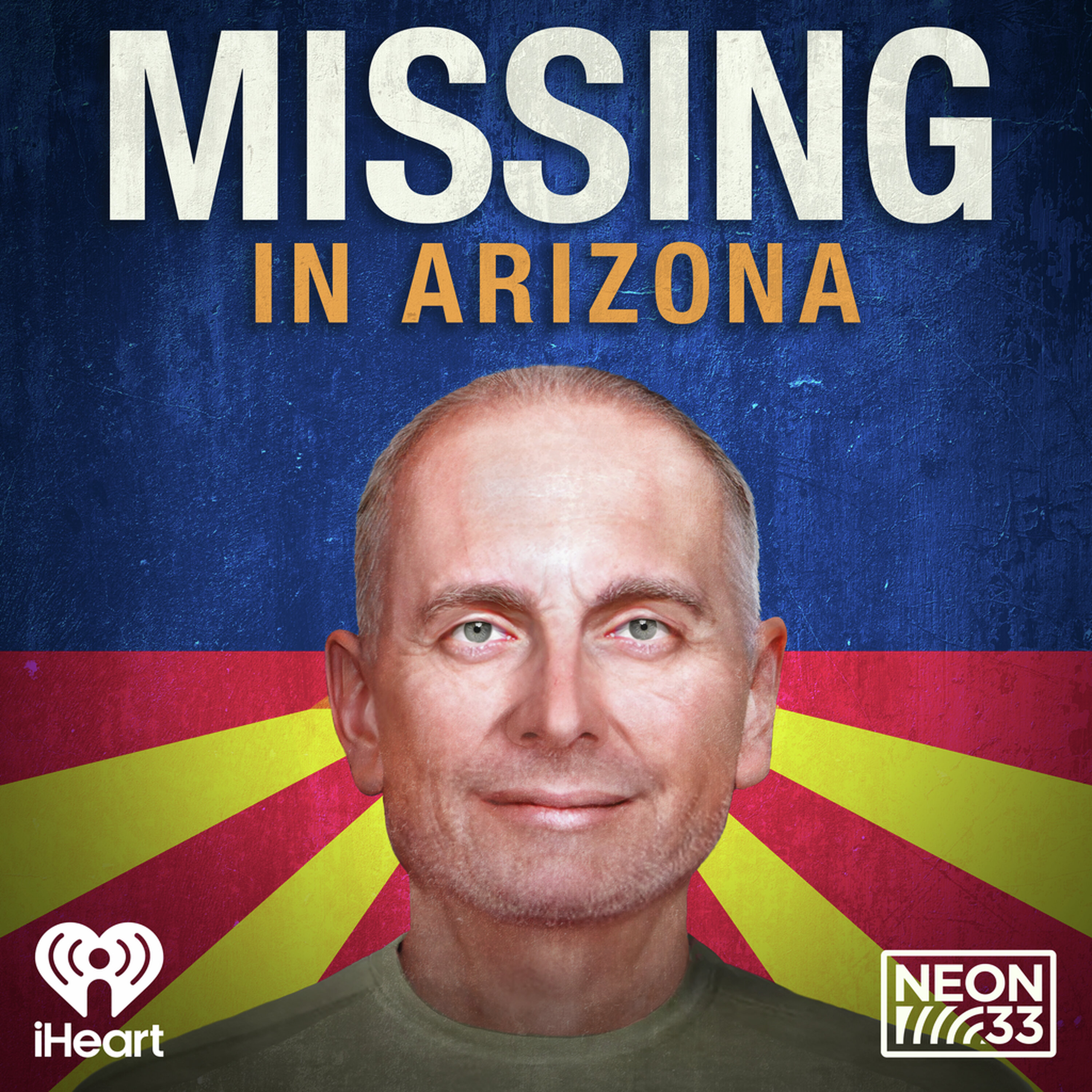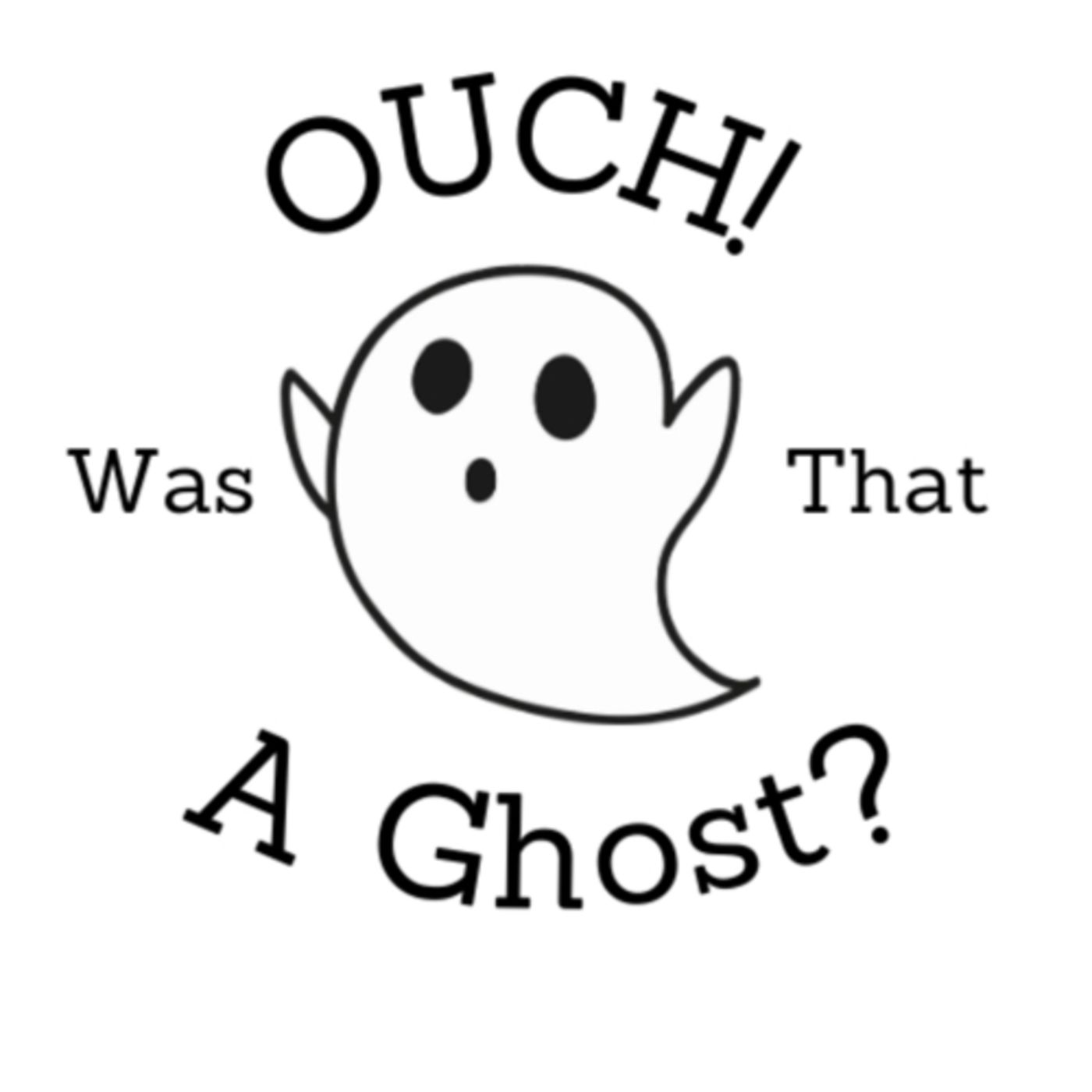
Wicked Wanderings
Delve into the enigmatic realms of the mysterious, unearth tales of haunting encounters, explore the chilling depths of true crime, and unravel the threads of the unexplained. Join us on the Wicked Wanderings Podcast for a riveting journey through the realms of the unknown and the haunting mysteries that linger in the shadows.
Wicked Wanderings
Ep. 100: Body Snatchers of Edinburgh
Use Left/Right to seek, Home/End to jump to start or end. Hold shift to jump forward or backward.
We explore the notorious tale of body snatchers William Burke and William Hare, who murdered 17 people in 1820s Edinburgh to sell their bodies to medical schools. Their gruesome business emerged from a shortage of legal cadavers when only executed criminals' bodies could be used for dissection.
• Edinburgh was a center for medical science in the 1800s with "operating theaters" designed for students to observe procedures
• Families used creative methods to protect graves including 24-hour surveillance, metal coffins, and protective cages called mortsafes
• Burke and Hare began their crimes opportunistically when a lodger died naturally, then progressed to murder by suffocation
• Their victims were primarily vulnerable people including the elderly, prostitutes, beggars, and people with disabilities
• Dr. Robert Knox purchased all their victims' bodies but escaped prosecution despite suspicions
• After their arrest, Hare testified against Burke in exchange for immunity
• Burke was executed in 1829 and his body was dissected, with his skeleton displayed at Edinburgh University and his skin made into souvenirs
• The murders led to the Anatomy Act of 1832, which expanded the legal supply of cadavers for medical education
If you find yourself in Scotland, visit the Surgeons' Hall Museums or the anatomy collections at the University of Edinburgh to see artifacts from this dark chapter in medical history.
If you'd like to show your support for Wicked Wanderings and join our community of dedicated listeners, you can start contributing for as little as $3 a month. Your support helps us continue to explore the darkest and most intriguing mysteries, bringing you captivating stories from the world of true crime and the unexplained. Click the link to become a valued member of our podcast family.
Don't forget to rate, review, and follow us on your favorite streaming platform.
Wicked Wanderings Website
Linktree
Instagram
We'd love to hear from you!
Email us @ wickedwanderingspodcast@gmail.com
Text Us @ CLICK HERE
Wicked Wanderings is hosted by Hannah & Courtney and it's produced by Rob Fitzpatrick. Music by Sascha Ende.
Wicked Wanderings is a Production of Studio 113
so when I put a sticker on something, I always want to pick at it. And then I'm like, don't pick at it, because then it's gonna come off. And then then, once it starts to come off, I'm like, oh, I gotta pick it the rest of the way off. And that just reminds me of the fact that I'm one of those weird sticker people who, um, collect stickers but not to put on things.
Speaker 2:So this is like the rest of what we were talking about with the sticker I have adhd.
Speaker 1:Get off of it.
Speaker 2:Yes no, I'm. I'm loving this, because stickers are a weird thing where it's like they cost five cents and we're like I don't know where to put it, so I'm not gonna put it anywhere and the worst I mean not the worst.
Speaker 1:I get stickers as gifts from people when they're like oh, this reminded me of you and I love it. But the worst ones are when somebody gives it to me as a gift. I I get this like paralysis, where I'm like I have to use it, but I can't use it and it's like it's just a sticker. It's just a sticker, okay.
Speaker 2:Hi, I'm Hannah and I'm Courtney. Join us as we delve into true crime, paranormal encounters and all things spooky.
Speaker 1:Grab your flashlight and get ready to wander into the darkness with us. This is Wicked Wanderers. We sort of collaborated Totally Hannah's idea. Hannah gets the credit for coming up with the idea and the finders. If we had a finders fee, we'd owe it to her, but we're all broke here and we don't pay finders fees. We are all broke here. So this is going to be a little bit different but hopefully collaborative in a way that's promising. As always. Give us feedback, let us know. Tell us, no, this is way too much, or we liked it. I think that we had fun doing it. Oh, absolutely. It's interesting because the things that I highlight in my research about things I think are very different than the points that Hannah comes up with in hers too. So hopefully, style wise, we'll mesh together like we usually do, and hopefully you all enjoy the story, but I think that's why we're doing it together.
Speaker 2:We're biffles. Yeah we're biffles. Hannah's going to take us away. All right, let's talk about medical science. Oh, I love medical science. Let's go to the 1700s in Edinburgh, scotland. It was an epicenter for the study of medical science. People flocked to it, and when I mean people, usually men, because of course women were allowed to do it.
Speaker 2:It was the 1800s, yes, so people flocked to this area to learn about the human body and this is when the operating theater was shaped as an actual theater. So when we hear like if you're on Grey's Anatomy, right, you hear operating theater. It doesn't look like a theater, like we may have boxes and then it's sterile and you can see from up above, but an operating theater looked like an actual theater, where there's, you know, like staging, where everyone had a good seat and could actually see what was happening to a body.
Speaker 1:And to understand and learn. I think sometimes it's easy to get stuck in the morbidity of that and say why would somebody want to look at that? But students did need to see to be able to learn, especially when they were talking about large volumes of students in a place such as this, to be able to learn, especially when they were talking about large volumes of students in a place such as this.
Speaker 2:So we have some ebb and flow, some demand, but lack of supply in this area, and a law was passed that made it illegal to use bodies unless it was a body of a murderer, and so, since the execution of prisoners was becoming less common, bodies were becoming less common. So if we had someone that was executed, great, that body can go to science, no problem. But since people weren't being executed like they used to be, we're not having as many bodies that we can actually look at in a scientific way and there was a ton of medical students at that time, correct Doctors.
Speaker 2:Influx Influx.
Speaker 1:So you can imagine having just a few here and there. The way that they would have normally come in wouldn't have been helpful, right Even with operating theaters and things like that.
Speaker 2:So we have the birth of a new type of criminal, which is they were known as resurrectionists or body snatchers. So families got really creative back in the day and they were like we need to keep our family member that has passed safe and if you have the money and the means to do this, this is what you did. They would do 24-7 surveillance for a couple weeks to make sure the body has decayed enough, which seems insane. Like you have like a spot at grandma's grave, right, and you're like all right, you take seven to five, I'll take five to seven the next morning. Like it's insane, right? Or there were cemeteries where they had a guard stationed and you paid for that, or you can invest in a metal coffin and that's not as easy as to get open.
Speaker 2:There were also cages that were set over the graves or blocks of stone, and if you've ever gone to Scotland which I have, and there's Greyfriars Abbey you can sometimes see where these cages were placed and people were like oh, it's because of zombies. It really wasn't because of zombies. They used to want their bodies picked apart by grave robbers. Actually, these slabs of stone were cages. These guys didn't stop there. They were like, all right, well, I can't get in from the top, I'll come in from the side. And so, like they, would dig like 20 or 30 feet away, build a tunnel into where the body was buried, strip it of its personal items because it avoided felony charges. Okay, so you leave, like any type of jewelry or clothing, and you would then bring the body to their favorite physician that would pay them out.
Speaker 1:That's the most disturbing part of the whole. I mean there's a lot of disturbing about it but it's for me the, the payment of the body You're you're not only stealing something, but you're stealing someone and then you're selling someone. There's a lot moral-wise that's wrong here.
Speaker 2:Very much so, yeah, like, what is your purpose? Like how there's always people that aren't getting the money that they need to live, but what is the purpose in this? Like, do you just have money to help your?
Speaker 1:family, quick money, right, and then greed. Yeah, I think a lot of times, with a lot of the crimes that we've talked about on the podcast or in general, people see how easy it is to make a buck, or they see how easy it is to get whatever that reinforcer is for them at that time and once they get away with it the first time we know, know, it's like candy. They just keep coming back 16 times 16 times, exactly Going into 16 times.
Speaker 2:There were two men, william and William. So we have William Burke and we have William Hare, and these were not the men that were the best society had to offer. I think they already had some history behind them. Questionable things, very questionable. They were definitely opportunistic people Yep, definitely. And they were living in the same boarding house yes, they were. That a man died in his sleep and, instead of just being the good citizens that you are, we're like let's report this to the proper authorities. They're like hey, you know, this guy owes money to the head of the boarding house, which was one of their wives at the time, I believe yeah, it was one of the williams common law wife, this guy, I believe how it was worded common law wife, which was like four dollars.
Speaker 2:It's like four pounds, yeah, four pounds. And like, oh, let's just sell his body, stuff a coffin full of firewood, so it's heavy, right, and sell his body to science. And so they actually got seven pounds by going to a Dr Robert Knox, which is now over a thousand dollars nowadays in our money for this body, just because this guy died right. And so then we have they're like, oh, we realized how much money we can make off this. Let's go a little bit further, like why not? So the first guy that they end up really killing, he was actually still sick, who lived in the boarding house, and they decided like, oh well, he's already sick, he has no family, let's smother him and kill him and send him to Dr Knox. And that's how killing of people from 1827 to 1828 started it was very opportunistic it was definitely none of it's great, right, the person who owed them money.
Speaker 1:I think there was a more clear motive there. It was like this person owes us money. Very odd to think. Not let's sell their belongings, let's sell them. But poor joseph was really just sick, sick and instead of waiting to profit off of him and he did sound like he, like Hannah mentioned, didn't have any family was kind of by himself they just struck him full of whiskey and suffocated him and then sold his body to the same Dr Robert Knox.
Speaker 2:And Dr Knox, which in the end spoiler alert he didn't get any crimes put against him at all. There was nothing to connect him to these bodies. But even though he had an inkling, he's not stupid right, he had to have known.
Speaker 1:He had to have known bodies are coming to you. They're pretty fresh, frequent. You're a doctor, so you must know, as a doctor who teaches right surgery, you must know what the qualifications to obtain bodies is regularly through the law. And now these same two guys are coming to you and you're paying them right. Definitely troubling.
Speaker 1:And with the two residents that we talked about from the boarding house after they were gone there was kind of nobody left. So they had to kind of get a little bit more creative and think outside the box. At that point yeah, um, you're looking at february of 1828 they had to kind of either say, okay, we're going to offer accommodations in our lodging house that we still have as this asset so we can get somebody else kind of through the door. And that person was abigail simpson. And they followed along the same trend. They, you know, let her engage in drinking alcohol and smothered her and then quickly carted her off to Knox's anatomy school, again In her case very gross here, because her corpse was so fresh.
Speaker 1:Knox actually paid more 15 pounds. And after that woman there was another tenant of the lodging house that followed. And then there was another woman who was actually invited by the woman who owned the lodging house. So at that point the women of the house are kind of aware. It was two couples, right, william and William and both of their spouses, however, that looked for them living in this house, and they're basically just inviting these tenants in, and then these people were going missing. So after that, they brought in two prostitutes to this lodging house.
Speaker 1:Poor prostitutes I feel like it is always the prostitutes and it's so sad Mary Patterson and Janet Brown. So Brown actually ended up getting away, and she's the only person to our knowledge that ended up getting away from this situation. So Brown and Patterson are at the house and Brown chooses to leave after there's an argument that erupts between Helen McDougal and William Burke one of the other women of the house and her William. When she came back to the house after this argument thinking things have cooled off, I'm going to come back she was told that her friend Mary Patterson had left with the other William, william Burke.
Speaker 1:So the next morning some of the students right, they're, obviously we know what happened here the Williams sold Mary Patterson's body. They obviously killed her, probably and presumably the same way they killed everybody else and they bring her to Dr Knox. And in this situation some of those medical students actually recognize Mary Patterson while she was on the dissecting table which I mean we're looking at the early 1800s. It's mostly men, as Hannah has shared. So we're thinking that perhaps this Mary has visited some of these students and that's kind of why and I think it's interesting because in the research it's always noted like multiple sources these students recognized her, but then what?
Speaker 2:like nothing came of it poor mary, because why would you want to say, oh yeah, I've slept with this woman like, or I've seen her? Even if you've seen her? Yeah, that's true, they know that you were in a certain area of the city or a certain house of ill repute women of the night right, god forbid that's true.
Speaker 1:So there definitely was something to gain for these men or students who didn't say anything and if, of course, if you had a wife at home that's true that would have been like that would have looked really bad right so unfortunately it doesn't stop there.
Speaker 1:The grisly spree continues and more victims include a beggar woman who was called Effie, who actually earned them 10 pounds, a woman who Burke had quote-unquote saved from the police by vouching for her character, an old woman and a small deaf boy who they sold for eight pounds each. So it really, they really were opportunistic. It's kind of the point that I'm trying to get across.
Speaker 1:They really and I would imagine that many different types of body would be valuable to someone in medicine, but there really was no particular like. This is what we're going for. They also did end up killing one of Burke's acquaintances and then a relative of one of the women of the house, helen. So those were all followed by an elderly prostitute also named Mary, mary Haldane, and then Mary's daughter, peggy, and Peggy actually it's sad she was trying to come to the home to figure out what happened to her mother, and that's kind of when Peggy fell into the same spot. So things are kind of starting to progress here and we're going to see a really quick downfall with Mary Haldane so she was actually very well known in the area and finally, finally, suspicions are starting to rise in this area.
Speaker 1:People are like something is weird about these two Williams. You know Burke and Hare. So their next victim was even better known than Mary, a young man known as Daft Jamie, and several of Knox's students actually did recognize him. Knox, of course, as Hannah said, did not end up getting charged with anything. So he's denying, denying, denying. He's saying the corpse is definitely not Daft Jamie, but he really kind of was weird about the dissection part for his face. He was definitely trying to cover his own tracks, in my opinion. And then, in early November 1828, burke and Hare killed their 17th and final victim, mary Docherty Another Mary Maybe Mary is their trend, very Mary and her body was actually discovered under a bed in their lodging house by two other lodgers, james and Anne Gray. Helen McDougall, one of the Williams' partners, tried to prevent them from going to the police by actually bribing them and offering to pay them 10 pounds per week.
Speaker 1:I mean, I guess you have the money because you've been selling all these bodies like crazy, and this was only a span of about a year. They reported what they had found. Anyways, despite her bribe that they didn't take Andke and hair, actually ended up removing and selling mary's body before the police even arrived. So what really got them all caught up is they started telling inconsistent stories, just like any crime with two people, and then you know they were, they were arrested and they did end up finding that mary's body at nox's school, which is when they started kind of piecing everything together.
Speaker 2:Damn I think justice really only only served through one of these guys, william burke, and it was found that they actually took his skin and after he was executed and made souvenirs out of it, including a pocketbook. That was actually on display, actually still now, and his skeleton is still on display in the university of edinburgh and scotland at the anatomical museum. He has become a product, a permanent product of what he was doing to his victims, which I think is just perfect. Justice, like his body, is not ever gonna find peace. It's just it's there on display and you can look up pictures online and I'm actually hoping very weirdly, um, that I could actually see his body at some point, because I just think it's like it's. It's permanent justice, right?
Speaker 2:Unfortunately, william hare he allegedly went back to ireland. He was said to be attacked by a mob, which good, I'm glad, could have rightfully happened exactly, but not finding out where his body is, and I believe corny correct me if I'm wrong that hair actually turned on burke and said it was basically all his fault and that's why he was executed yeah, so from my understanding of kind of how the nitty-gritty went for, kind of the moment, from the police being called, missing them, selling the final body, the only prostitute, whoever a person who ever ended up getting away from them was the prostitute janet brown.
Speaker 1:So she ended up coming forward to the police as well and she was able to identify clothing that was found at the lodging house that had belonged to her friend mary.
Speaker 1:So there was definitely evidence. I mean, obviously there was testimony and all these people coming in and out of this place and going missing. But despite all of that, the case against Burke and Hare was just, it wasn't watertight. There was a lot of really strong evidence, but from my understanding Hare was offered immunity from prosecution entirely if he confessed and then agreed to testify against Burke, who, according to him, had committed you know, committed most of the actual murders. I don't actually know what most has to do with it, or you know, I mean now we look at things as like murder and then accessory to murder. It definitely sounds like they just wanted to kind of pin this on somebody, and so his testimony was what led to Burke's execution and that date was January 28th 1829, before they ended up making him into all of these artifacts and permanent products that hannah speaks about and sadly I do feel like I kept coming up and I'm like we have to know what happened to hair.
Speaker 1:But he was released and said to have been blinded during that attack by, you know, potentially a lynch mob. Some sources say that later he did end up dying as a beggar in london, which feels a little like poetic justice. Helen mcdougall was released. She was nearly lynched and then fled to australia where she is said to have remained, and then maggie, who was also, uh, the owner of this boarding house, was also released and fled to ireland. Robert knox, of course, as we had said, was notuted, even though there was definitely public outcry against him. The sources all made that very abundantly clear that people were like there is something very wrong with this man Because he knew what he was buying.
Speaker 1:How are you buying bodies that are fresh and you're not wondering where they're coming from?
Speaker 2:and these same two guys are bringing them to you and the amount of bodies coming in from the same guys you don't say that's a little sauce well, and even too, I mean you have to think about we're gonna get a little morbid.
Speaker 1:So for anybody who doesn't want to deal with that gore, you know, maybe skip forward a couple minutes here. But there's definitely a difference between a body that has been in prison right, you're talking about prisoners and then a body that's been well fed, well taken care of, cleaned. How soon they died you can tell, I would imagine, as a medical student, bruising Like I mean suffocation, I guess was a good way to do it for them, because there wasn't going to be like blunt force trauma, there wasn't going to be marks or anything, maybe some marks depending on if strangulation was included. But really he got away with it Grossly, dr. But really he got away with it like 100 grossly, dr robert knox got away with it.
Speaker 1:And then I think probably the best silver lining of all of it is that their activities did end up resulting in the passing of the anatomy act 1832, which then ended up expanding the legal supply of medical cadavers, therefore to eliminate the incentive that had led to the murder of these 17 people. But surely they were not the only people who were resurrectionists. They're two of the most famous for that area in that time, but they're definitely not the only people who had said hey, this is a cash cow, yeah, let me just hop in here and take care of this.
Speaker 1:There's definitely museums, too that I think would be really interesting to visit if you're out in that area Not that many people probably get out to that area very often, but National Geographic did have a list on their website of different kind of museums and what you could see as far as artifacts and history at both, Because this story is part of their history these two men's history but it's also part of anatomy and medicine Medicine, absolutely. And then the history of all 17 of those victims too. Yeah, we always try to use the victims' names as much as we can, and I feel like with this one, obviously because of the age of the case and being across seas and being across seas. Sadly, some of the people didn't have names, but if you are able to come up with any, if you guys do your own research, please let me know, because I'd like to amend it to have their names too.
Speaker 2:I couldn't find many of them, though I think medical history is big on our hearts, everywhere we came from, whether it's physical or mental health. I think that's very, very important, and they were doing what they could because they didn't have MRIs or any of these fancy technology in order to look at a body, but they also wanted to do it to bodies that you're not desecrating them, and these men were desecrating bodies, and that's the big takeaway here.
Speaker 1:And I think about now people can donate their bodies to science, but I feel like even there there's something being said to say well, I'm gonna donate my body to science, I'm gonna sell my body to science.
Speaker 1:it just doesn't the connotation of exchanging money yeah yeah, for a body, and I think especially I mean all around the world, unfortunately, people are exchanging money for bodies in some form. But right now we're in a very weird part of time where you know like sex work is becoming more progressive, but there's also like sex trafficking, which is selling bodies, which is not great and like we don't hear about people selling bodies, but do they still do that? That's kind of what I found myself thinking do people still?
Speaker 2:I guess when you go into that criminals right, they didn't give consent, that like okay, if I have to die by x for being criminal, they didn't give their bodies a science. It was just people saying like oh well, they're a criminal, let's just give their body away and so my mental health background.
Speaker 1:Immediately, when I saw that was like oh so we're gonna study the people who work differently than the regular population of people and expect to understand how everybody's the gross overgeneralization of that, because there is a difference between, you know, mental and physical health, at least for me in the way that I practice. Yeah, they're linked, they're completely linked, treating the whole person. So if somebody is a criminal based off of their psychology, then their physical health is going to be changed based off of their psychological health as well. So interesting, just take on that. They thought that was an appropriate way to go about it. Right, and you're right, even though they were criminals, they should have been able to consent to their body being absolutely taken and and depart.
Speaker 1:I'm surprised that religion didn't play a bigger role in that, yeah, this story didn't have religion intertwined but I could see where it probably could have. Yeah, absolutely, absolutely. It's a very solemn story. It is very solemn. So, wanderers, if you find yourself in scotland or if you want to just check out some museums online, I'm sure they have great online archives, like most do. Some of those museums are the Surgeon's Hall museums and then the William Burke Museum specifically, which you'll know is one of the main characters of our episode. William Burke himself oh, I don't know why he has his own whole museum.
Speaker 1:Yeah, that's what I want I definitely think that that's. It seems like it's part of the caddies and witchery tours. They definitely like do a whole walkthrough of it, but they're said to have some some pretty interesting history there and there's definitely a lot of pictures. If you're more of a picture person, while you're learning, hannah is going to end us off with a horror movie recommendation and I'm excited because the closer we're getting to Halloween, the more I'm looking for movies I'll probably never have time to actually watch.
Speaker 2:Okay, which one am I going to talk about today? Pick a movie any movie.
Speaker 1:She's just had so much time off this summer that she's watched so many. She's flipping pages on pages, on pages, okay so I'm gonna talk about saint maud m-a-u-d.
Speaker 2:Okay, if you have any religious trauma, do not just fast forward right through, get the title and move along. Just don't. So it's called St Maude M-A-U-D and it is about this woman who is a nurse. So she was working in a hospital. Something happened which was not really transparent about what happened, but it was something very traumatic and she started being a nurse in people's homes kind of like people that were near death, like hospice nursing, yes, like end of life comfort, care kind of thing.
Speaker 2:Yes, okay, thank you. That's perfectly putting it, courtney. And make sure they get their meds, get their food, exercise if needed, and after the experience she had in a hospital, exercise if needed. And after the experience she had in a hospital, she all of a sudden became very religious, like God was her central focus and so she started living with this woman who was famous, was an actress or technically an actress slash person who did ballet, and she thought that she was saving her soul from the devil. So overall, I should say first I gave it overall three star Okay, and the gore body horror I gave a three out of five. And the reason I gave it a three out of five is because there's a lot of religious body horror moments where there's a lot of hurt to self. Okay, in order to have a better religious experience. And the ending it can be very traumatic for people. I actually really loved the ending. I thought it was very poetic in a sense. But if you do not like the self-inflicted pain stuff where religious components come in, I would tread carefully.
Speaker 1:That's a solid recommendation. Thank you, Rob. Our producer is encouraging me to also add a recommendation, so I am not doing horror movies, but I read very, very quickly and so I think.
Speaker 1:I'm on my 89th book of the year. Let's talk about it and I want to start plugging not only books that are fabulous reads, but I really want to also plug some authors that I think are really worth checking out. So this is not a true crime, it's not a true story, it's nothing like that that. But if you're into psychological thrillers, thrillers, crime books, that kind of thing, you definitely have to check out from within. It is available on kindle unlimited, okay, and it is written by bg freeze. He is amazing. I connected with him on instagram. He is always available to talk about his books. He's definitely got just two books under his belt right now. But not only does he write a great psychological thriller and you guys know how hard it is to get a five star review out of me he got a five star on the first book but he really knows how to spin a tale and he's he's just a phenomenal person to interact with as well, so you definitely have to check him out.
Speaker 1:He does have his book up on Amazon. If you're a Kindle fan, you can get it for Kindle and I believe you can buy a hard copy as well. But if you want to check out his Instagram also, he is on Instagram under BG Freeze, so definitely check him out.
Speaker 2:Love it. Look at us.
Speaker 1:Look at us Just making recommendations to girls who gave us microphones anyways, we did because we don't care. But, if anybody has any recommendations for us, we're. We're always open to being told what we should read or what you think would be a great topic. It was definitely interesting to take ourselves out into a place that's so important to hannah too. Oh, it was nice. It was really great to kind of dive in, even though hannah had to deal with me because I couldn't pronounce like half of the shit we were talking about you were doing, doing great.
Speaker 1:I you know it's the ADHD guys, but luckily. I cropped all the things I was going to say in my mind, where I was like I can just allude to it without actually saying it. Just you know, I think collaboration worked well for us today. I think we did well. I think it did too. I was very which Rob will be top tier excited about when he edits this Well.
Speaker 2:thank you, wanderers. I appreciate you putting up with us. Thanks for wandering with us to Scotland, this time Yay, yay, scotland. Bye.
Speaker 1:Wanderers. Bye guys, Till next time.
Speaker 2:Thanks for listening. Today, wicked Wanderings is hosted by me, hannah, and co-hosted by me, Courtney.
Speaker 2:And it's produced by Rob Fitzpatrick, Music by Sasha M. If you enjoyed today's episode, don't forget to leave a rating and review and be sure to follow on all socials. You can find the links down in the show notes. If you're looking for some really cozy t-shirts or hoodies, head over to the merch store. Thank you for being a part of the Wicked Wanderings community. We appreciate every one of you. Stay curious, keep exploring and always remember to keep on wandering. Thank you.
Podcasts we love
Check out these other fine podcasts recommended by us, not an algorithm.

Music City 911
Music City 911
Stranger In The House
Alexa Morrissey
Missing in Arizona
iHeartPodcasts
Missing in Alaska
iHeartPodcasts
Missing on 9/11
iHeartPodcasts
Twenty Thousand Hertz
Dallas Taylor
Start Here
ABC News
Scalarious
John Olson



